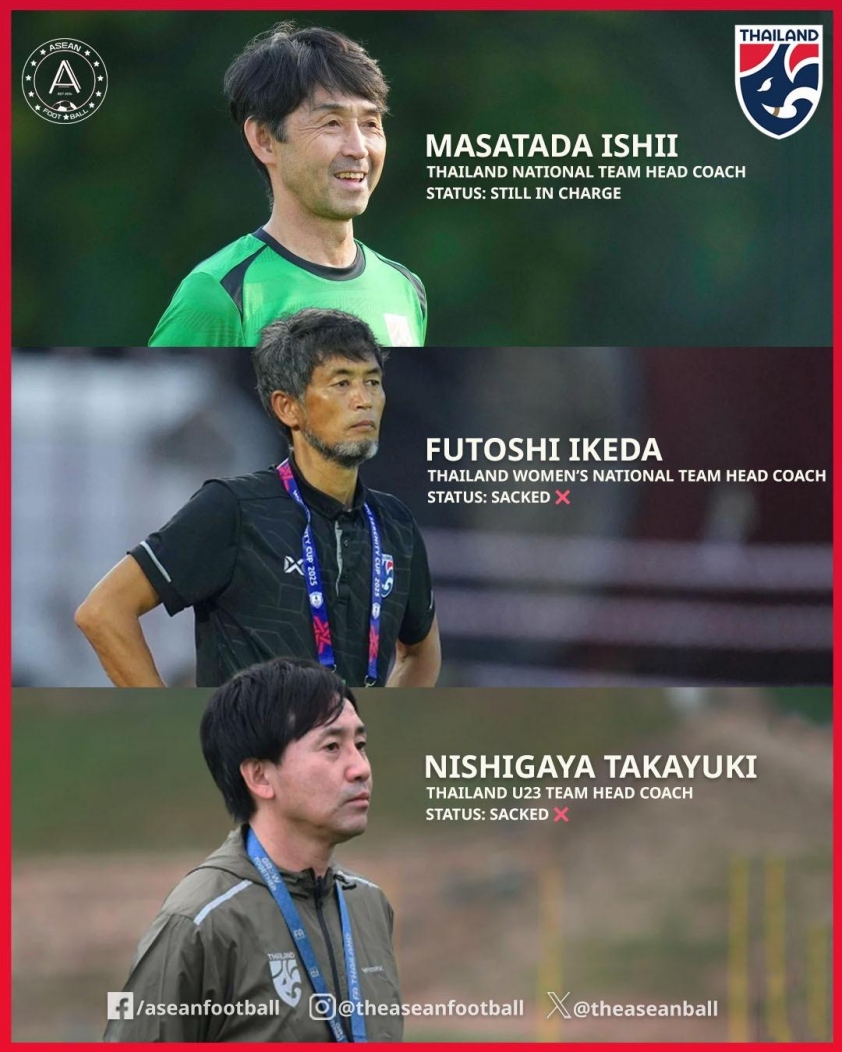Thailand keeps failing with Japanese coaches
Thailand has faced failure in implementing the Japanese coach approach, as the national teams’ outcomes fell short of expectations, calling into question the appropriateness of this plan.
In recent years, the Football Association of Thailand (FAT) has attempted to adopt Japan’s successful football model by appointing Japanese coaches for the national teams. However, after over a year of implementation, the results have been disappointing, casting doubt on the effectiveness of this approach.
Specifically, Masatada Ishii, head coach of the Thai men's national football team, remains in position despite the team failing to win the 2024 ASEAN Championship and finishing as runners-up. Moreover, the loss to Turkmenistan in the 2027 AFC Asian Cup qualifiers has increased pressure on Ishii, causing skepticism about his continued leadership of the team.

Thai women's football has also faced disappointment. Futoshi Ikeda, head coach of the women's national team, was dismissed after the team failed to qualify for the 2026 AFC Women’s Asian Cup, which also meant missing out on the 2027 FIFA Women’s World Cup. Additionally, Ikeda could not secure any titles at the 2025 ASEAN Women’s Football Championship, making his dismissal inevitable.
The Thailand U23 team under Nishigaya Takayuki also met with misfortune. Following a streak of five consecutive losses, Nishigaya was fired. This further highlights the instability within Thailand’s national teams when Japanese coaches are involved.

In the 2025/26 Thai League 1 season, Japanese coaches have completely disappeared. This reflects a shift in Thai football’s perspective and strategy, as clubs no longer consider Japanese coaches part of their long-term development plans.
Furthermore, despite many Japanese coaches working in Southeast Asia, no coach from Japan has ever led a team to win the AFF tournaments historically. This makes Thailand’s choice of Japanese coaches a challenging issue to resolve.


Wonderfulshortvideo
mainoo amorim benched manchester united 1-1 fulham


bruno penalty miss manchester united 1-1 fulham


Leeds battered by Arsenal but it’s not all doom and gloom. On to the next one


mbappe goal vini goal xabi alonso vini benched








 Links
Links
 Contact
Contact
 App
App


